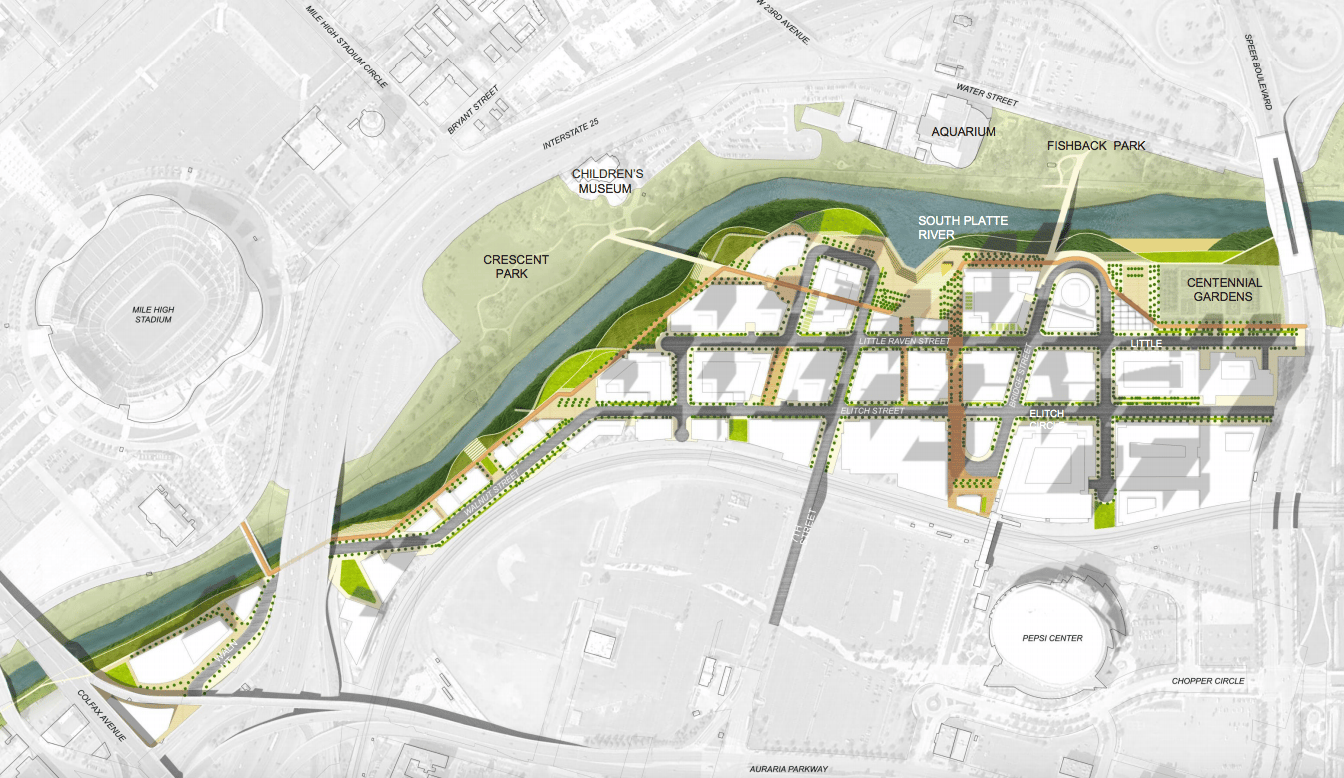Denver has rarely seen a project proposal as large as River Mile -- and it will require a major new investment in basic infrastructure, starting as soon as 2019.
The developer, Revesco Properties, wants to build a new section of downtown Denver on the banks of the South Platte river. It would start on the parking lots around Elitch Gardens, and eventually it would replace the amusement park itself.
The site one day could be home to 15,000 people, and Revesco envisions buildings up to 59 floors. Development could take decades, and that kind of change doesn't come cheap.
Revesco estimates that it could spend $665 million or more on infrastructure for the new district, including streets, parks, eco-friendly systems and more, according to a new presentation by the developer.
How they would get the money?
Revesco wants to create special taxing areas, known as metro districts, to pay for new infrastructure on and around its 60-acre site. Basically, the company and future property owners would pay extra taxes on the Elitch's land.
That guaranteed stream of money would allow Revesco (through the districts) to take on up to $1.2 billion of debt over 15 years. If approved, the districts could collect an extra 60 mills of tax on the property -- nearly doubling the regular city rate.
Revesco also wants to create a broader "voluntary" area, which would allow other property owners to pitch in a tax of 60 mills for larger projects that benefit the whole area. That larger area would include the Pepsi Center, properties along Water Street and an area south of Elitch Gardens.
Once all this stuff is built, government agencies would take over maintenance of some of the projects. Denver also could pitch in money for projects "that are mutually beneficial," according to finance spokesperson Courtney Law -- but it's too early to say whether that will happen.
The plan was scheduled for a discussion at Denver's finance and governance committee on Tuesday at 1:30 p.m.
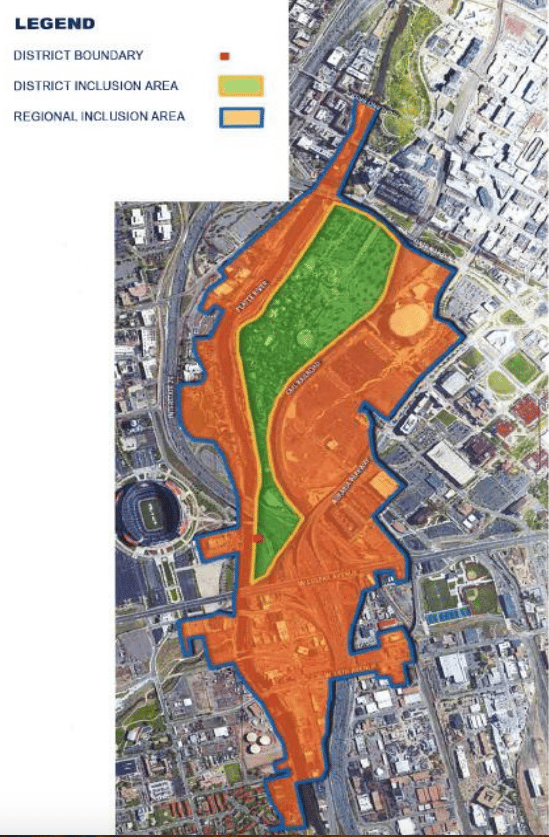
What would they spend it on?
Revesco expects that the infrastructure will be built in "approximately four" phases, beginning as early as 2019 and ending in 2040, depending on how things go.
A lot of the money would go to the basics: pipelines for water, new streets, public transportation. But the new plans also detail some noteworthy additions.
The river:
First, the developer expects to contribute money for flood-control and other projects on the river itself. "Confluence Park is kind of a pinch point at the river, so there’s a potential flooding situation onto our property," said spokesman Sean Duffy.
The plans anticipate dredging of the river, plus a rehabilitation project and the construction of a kayak park near Speer Boulevard. (That area already features chutes for kayakers.)
The goal is to "accelerate" implementation of the flood-control plans that are created by the authorities, Duffy said.
Parks and open space:
The new document includes two plazas -- one "transit-oriented" area near Pepsi Center and another "river-centric" plaza.
The developers also have described plans for a new "urban loop trail" along the river.
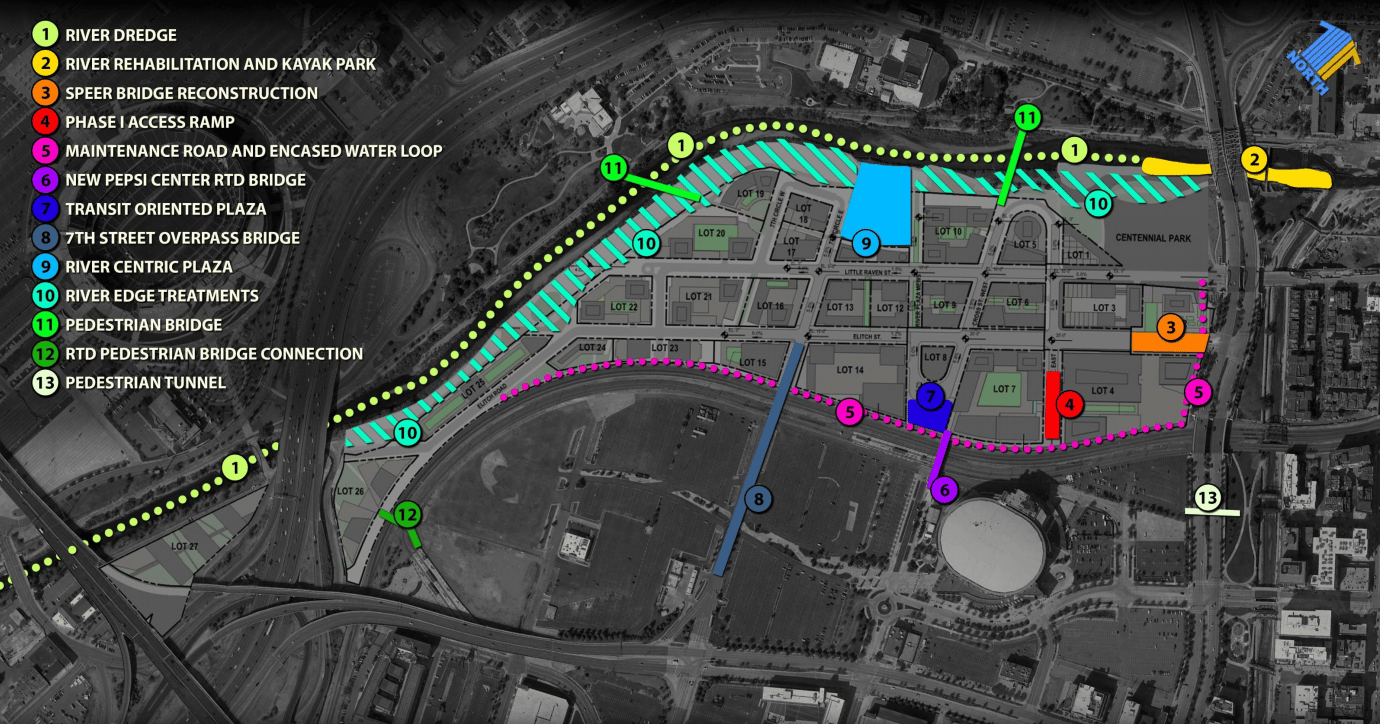
Bridges and tunnels:
The area is separated from the rest of the city by railroad tracks, Interstate 25 and the river -- so, this new plan is big on bridges.
The developers envision:
- Pedestrian bridges to Crescent Park and Fishback Park
- A pedestrian tunnel under Speer Boulevard to the Cherry Creek Trail
- Pedestrian bridges to the RTD stations at Mile High. (We've reported on problems in that area previously) and the Pepsi Center.
- A road bridge toward Auraria Parkway.
Separately, city plans call for improvements to the 23rd Avenue bridge. Right now, pedestrians have to squeeze in an uncomfortable gap alongside traffic lanes. The city hopes to rebuild it with protected bike lanes and walkways.
Green stuff:
Developer Rhys Duggan has made sustainability a central part of his message on River Mile. The new districts could pay for some of that infrastructure, including:
- A heat recovery system
- A distribution system for recycled water
- Rain gardens
- Rainwater harvesting systems
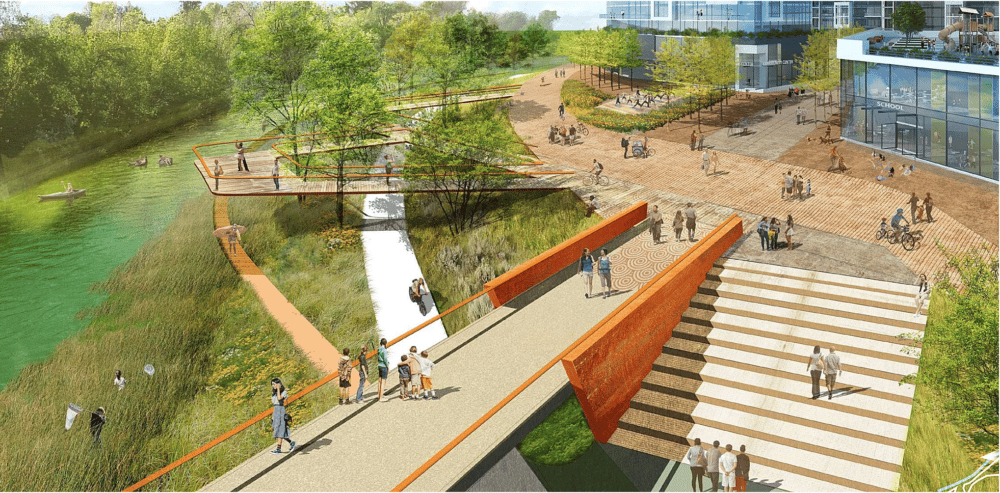
And, if you're curious, here's how Revesco breaks down its infrastructure cost estimate:
- Domestic water system: $11.4 million
- Streets: $286 million
- Wastewater: $6.9 million
- Safety: $57 million
- Parks and recreation: $242 million
- Transportation television relay: $7.6 million
- Green infrastructure: $54.7 million
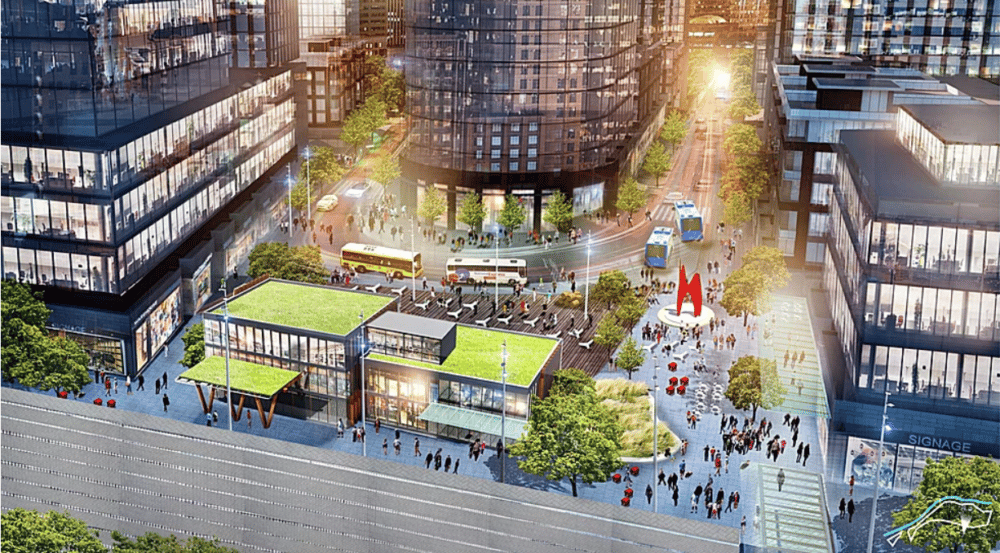
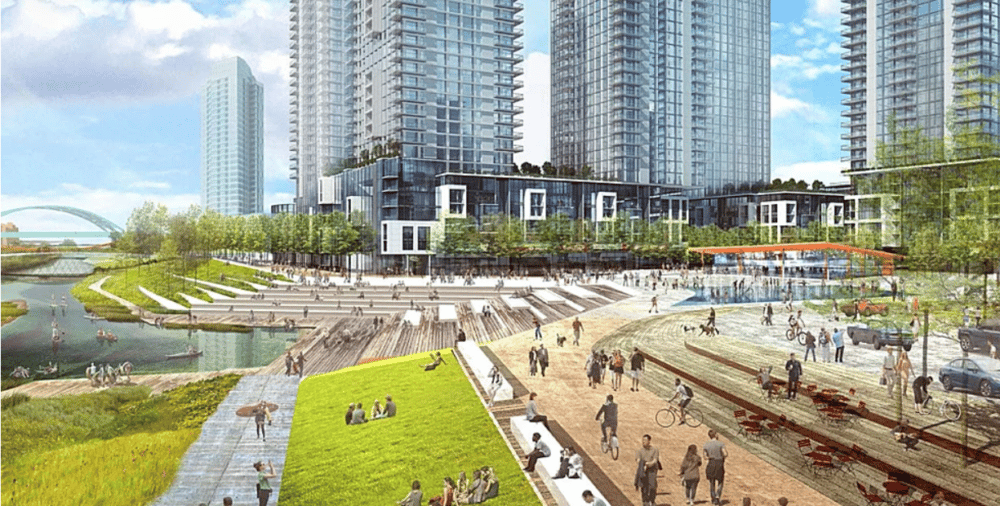
What's next?
The developers need some approvals from the city's elected officials. The Denver City Council would have to approve the new financing systems, and the developer also will have to request a rezoning for the property.
At an earlier meeting, council members had plenty of questions, but they were supportive of the idea of high-density development in the area.
Duggan, the developer, has said that he wants River Mile to be a neighborhood for everyone, with a focus on affordable housing and amenities for families, including a school, daycare and recreation center.
The goal is to create a "high-rise, multi-use urban design community that is walkable, transit-oriented, diversely populated, and designed to capitalize on the recreational and aesthetic opportunities associated with the Platte River, with a strong focus on energy efficiency, water conservation, and sustainability," according to project documents.
So far, the project hasn't encountered much opposition -- possibly because its nearest residential neighbors are separated by a highway and a river.
Michael Guieetz, president of Jefferson Park United Neighbors, said that many of his neighbors want better access to urban amenities.
"Our residents want to live downtown. They want to be in an urban environment. We’re accepting of change. This isn’t like we’re in Highlands Ranch and all of a sudden a bunch of skyscrapers come up," he said.
"Predominantly, people in our neighborhood want to be in an urban type environment."
But some are worried that the project also could bring intense development to Water Street, on their side of the river, he said. Revesco doesn't own the property and doesn't have plans for it, Duggan said.
In the long term, the plan would require the removal of the Elitch Gardens theme park. The ownership group is interested in finding a new site, but doesn't have a solid plan, Duggan said. That would be "many years" away, he told Denver council members.
Correction: This post originally misstated the potential number of mills in the regional district.

